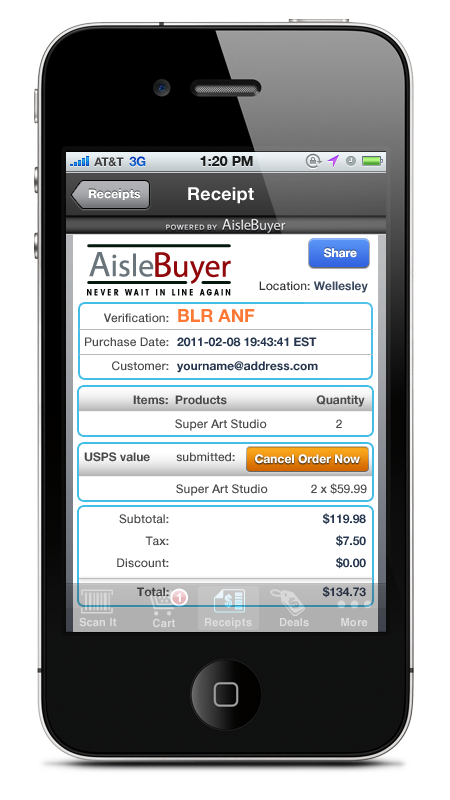Small retailer enables self checkout with iPhone app


That is something that AisleBuyer, which develops a mobile commerce platform, is counting on. The Boston-based company recently announced a deal the supermarket chain Big Y that will see its iPhone and Android mobile application used in-store for applications such as coupon scanning or to access customer reviews. In the press release announcing the deal, AisleBuyer CEO Andrew Paradise said: "In the competitive grocery market, Big Y has alway been renowned for its commitment to service. By enabling customers to shop using the mobile devices they love, Big Y is delivering best-in-class customer service."
But when AisleBuyer needed a retailer to test its mobile shopping applications, it turned to a smaller retailer, Magic Beans, to really assess the viability of the technology. "I don't think there are many solutions likes this for small businesses right now," Paradise said.
Magic Beans, also based in the Boston area, sells baby gear and toys in five locations. The store's cofounder and CEO Sheri Gurock agreed to use the AisleBuyer mShop mobile application more than a year ago.
mShop allows customers to use an Apple iPhone or Android device to scan a product's bar code, review details and reviews, and then add it to a mobile shopping cart. If the customer decides to go through with a purchase, he or she can check out with the smarthphone without having to wait in line.
Over the Black Friday post-Thanksgiving weekend, approximately 18 percent of the store's transactions were completed through the mobile application, Gurock said. That compares with about 12 percent last year.
"mShop helps you incorporate the best of online shopping with the intimacy of retail," Gurock said. "If I can use this as a time-saver for the customer and the store clerk, and save both of them time at the end of the transaction, everyone wins."
There are challenges with using mobile shopping technology, Gurock said. For one thing, one of the oldest habits in the history of commerce is walking up to a cash register to complete the sale. So, until larger stores begin adopting these applications, smaller retailers might be challenged with educating customers, she said.
Apple's move to embrace similar applications in its retail stores could have a big potential impact.
Mobile shopping might also worry a retailer's employees, who think that if they are cut out of the transaction, they might lose their job. In the case of Magic Beans, mShop has allowed Gurock to focus store employees more on customer service and product selection, providing more "intimacy" in the shopping experience.
So, for example, a clerk equipped with an Apple iPad could act as a personal shopper for a customer that doesn't have a smartphone. The two could walk around the store, review and compare items. Once the expedition is over, the customer can check out on the store floor rather than enduring the cash register, put the items in a bag and walk out the door. Transaction complete.